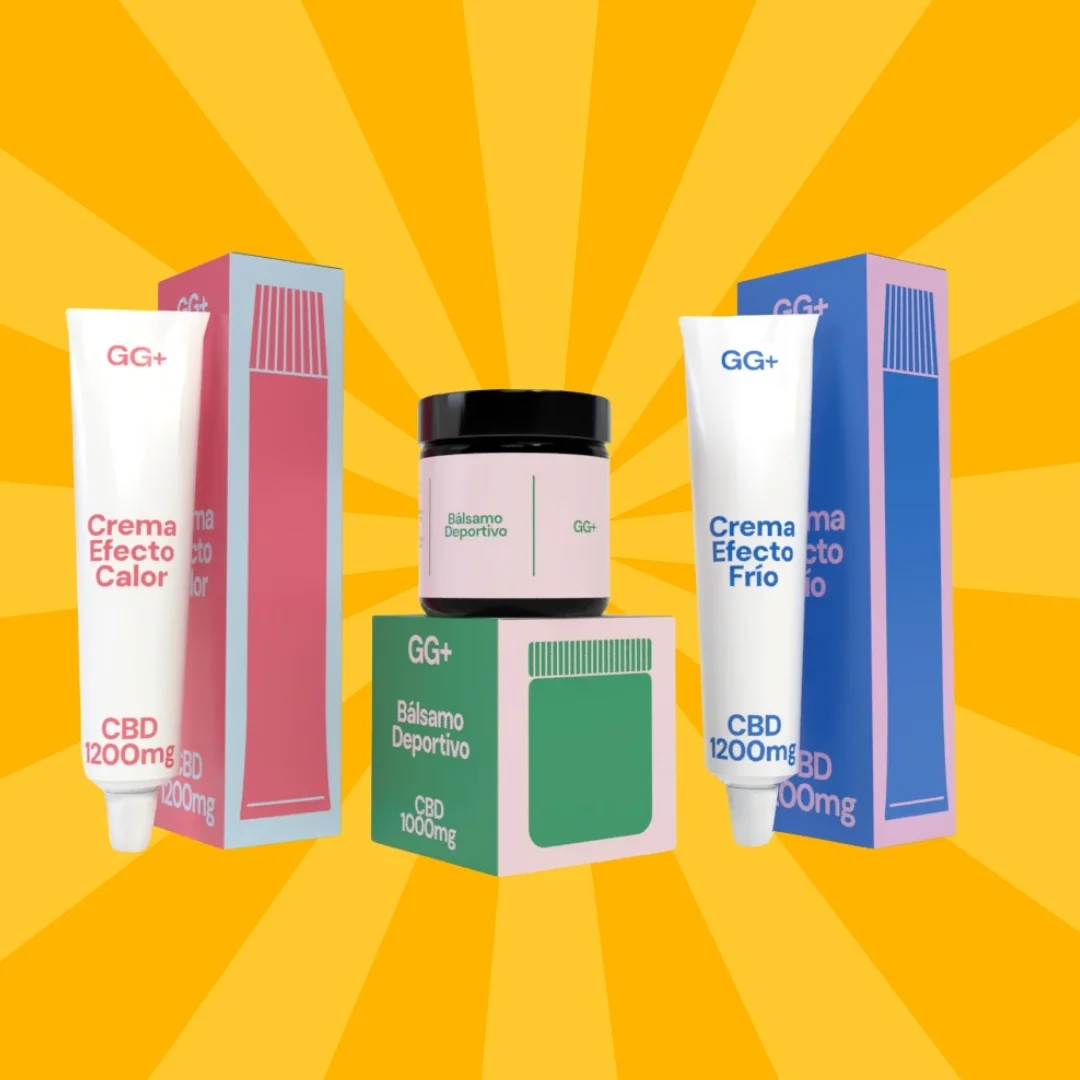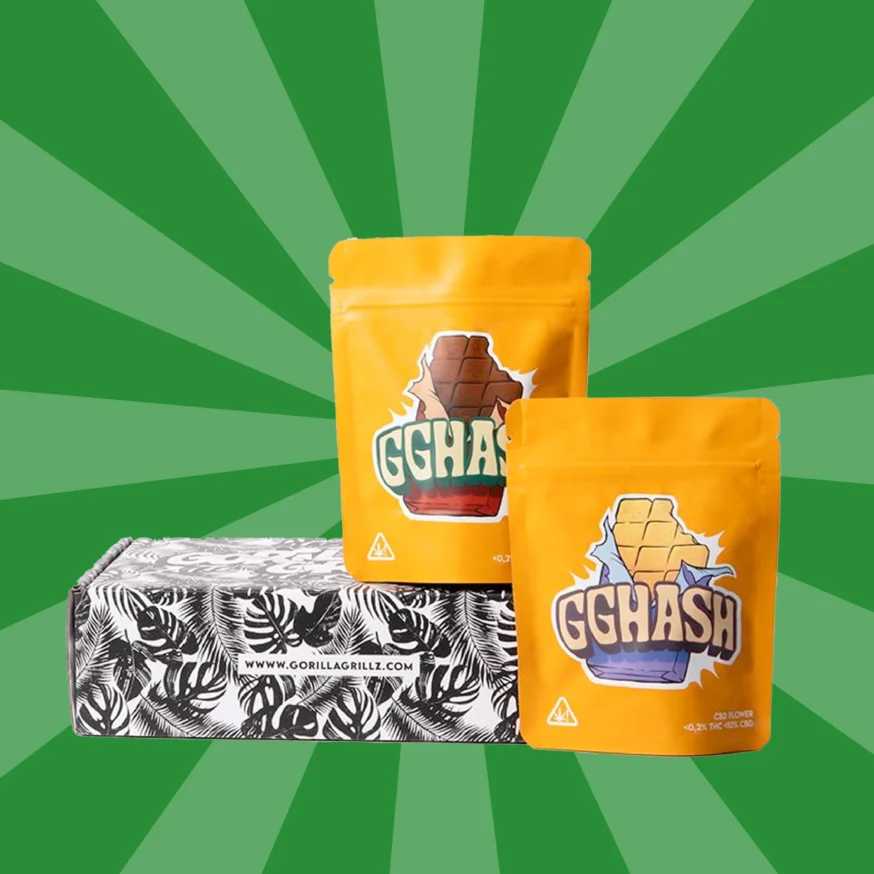CBD, scientifically known as Cannabidiol, has emerged as a key ally in the battle against skin conditions, particularly in oily and combination skin.
In this article, we will delve into how CBD acts as a potent anti-inflammatory and sebum regulator, highlighting its relevance in effectively managing acne and controlling its underlying causes.
What does sebum-regulating mean?
Sebum-regulating active ingredients are essential to control the excessive production of sebum, an oily substance produced by the skin’s sebaceous glands. These glands, located mainly on the face and upper back, play a crucial role in maintaining hydration and protecting the skin, but their hyperactivity can lead to problems such as acne. Various factors, such as hormonal imbalances, stress, environmental conditions, and diets, can trigger this sebaceous hypersecretion.
To combat this, there are specific treatments that act in different ways: regulating sebum production in the glands, blocking hormone receptors to prevent sebum formation, controlling keratin synthesis to prevent follicle clogging, and limiting bacterial proliferation to reduce inflammation. The right approach depends on properly identifying the underlying causes of the problem
CBD as a sebum regulator and bactericide
The endocannabinoid system (ECS) plays an essential role in several physiological processes in the skin, including cell growth, differentiation, and sebum production. In addition, it has anti-inflammatory and bactericidal effects. In vitro research has revealed that CBD, when applied to human sebocytes and cultured human skin, reduces sebum production and suppresses sebocyte proliferation. This is achieved by activating specific ion channels and influencing certain biochemical processes such as NF-KB signaling.
In addition, CBD has been shown to possess high antimicrobial efficacy against a variety of gram-positive bacteria, including antibiotic-resistant strains. In studies with ‘ex vivo’ pig skin infected with Staphylococcus aureus, CBD was observed to significantly reduce the bacterial load. This underscores its potential as a therapeutic agent in the treatment of acne and oily skin problems, where bacterial proliferation and inflammation in the pilosebaceous follicles are key factors.
How to use CBD to treat acne?
Acne arises from the clogging of the pores due to excess sebum, dirt and dead cells, thus facilitating the colonization of bacteria such as propionibacterium acnes, which cause inflammation and redness. The key to treating acne lies in keeping the skin clean, reducing the presence of impurities and bacteria, and controlling oil production.
CBD oil helps regulate sebum production, decreases inflammation and fights bacteria on the skin, thus helping to prevent and effectively treat acne.
Topical use
The topical use of CBD, in forms such as oils, creams , or balms, offers significant advantages for treating acne and oily skin. These products have been proven to be effective in reducing inflammation, regulating sebum, and keeping the skin clean of impurities and bacteria. In addition, they help to reduce the visibility of scars caused by acne.
In cases of dry mucous membranes due to oral treatments with isotretinoins, CBD is especially beneficial due to its fatty acids, which provide hydration and nutrition.
On the other hand, CBD also has positive effects on the scalp. It helps prevent hair loss and stimulates hair growth, thanks to its anti-inflammatory and antioxidant properties. It is ideal for sensitive scalps and those with flaking problems, providing hydration, improving blood circulation and regulating sebum production, being useful for both cases of seborrheic dermatitis and extremely dry and flaky scalps.
Bibliography and Digital Sources
- Palmieri B., Laurino C., Vadalà M. (2019). “A therapeutic effect of CBD-enriched ointment in inflammatory skin diseases and cutaneous scars”. Clin Ter. https://www.ncbi.nlm.nih.gov/pmc/articles/PMC6429381/
- Bíró T., Tóth B. I., Haskó G., Paus R., Pacher P. (2009). “The endocannabinoid system of the skin in health and disease: novel perspectives and therapeutic opportunities”. Trends in Pharmacological Sciences. https://www.sciencedirect.com/science/article/abs/pii/S0165614709001438
- Atalay S., Jarocka-Karpowicz I., Skrzydlewska E. (2019). “Antioxidative and Anti-Inflammatory Properties of Cannabidiol”. Antioxidants. https://www.mdpi.com/2076-3921/9/1/21
- Casares L., García V., Garrido-Rodríguez M., Millán E., Collado J. A., García-Martín A., Peñarando J., Calzado M. A., de la Vega L., Muñoz E. (2020). “Cannabidiol induces antioxidant pathways in keratinocytes by targeting BACH1”. Redox Biology. https://www.ncbi.nlm.nih.gov/pmc/articles/PMC6993479/
- Oláh A., Tóth B.I., Borbíró I., Sugawara K., Szöllõsi A.G., Czifra G., Pál B., Ambrus L., Kloepper J., Camera E., Ludovici M., Picardo M., Voets T., Zouboulis C.C., Paus R., Bíró T. (2014). “Cannabidiol exerts sebostatic and antiinflammatory effects on human sebocytes”. Journal of Clinical Investigation. https://www.jci.org/articles/view/64628
SOUTHERN PHARMA SPAIN S.L will not assume any liability arising from the use by third parties of the content of the website and may exercise all civil or criminal actions that correspond to it in the event of infringement of these rights by the user. It is absolutely forbidden to use the website or any of its elements for illicit purposes. The benefits and properties of cbd that could be read on the website www.gorillagrillz.com are in no way attributed to the products sold on the website. CBD products are not medicines and should not replace treatments with them. What you can read on our website are not official medical claims but references to preclinical studies. If you have any questions, you can consult with a professional health personnel. We remind you that in Spain CBD products are for topical use. All products have THC<0.2% analyses in accordance with Royal Decree 1729/1999.


















